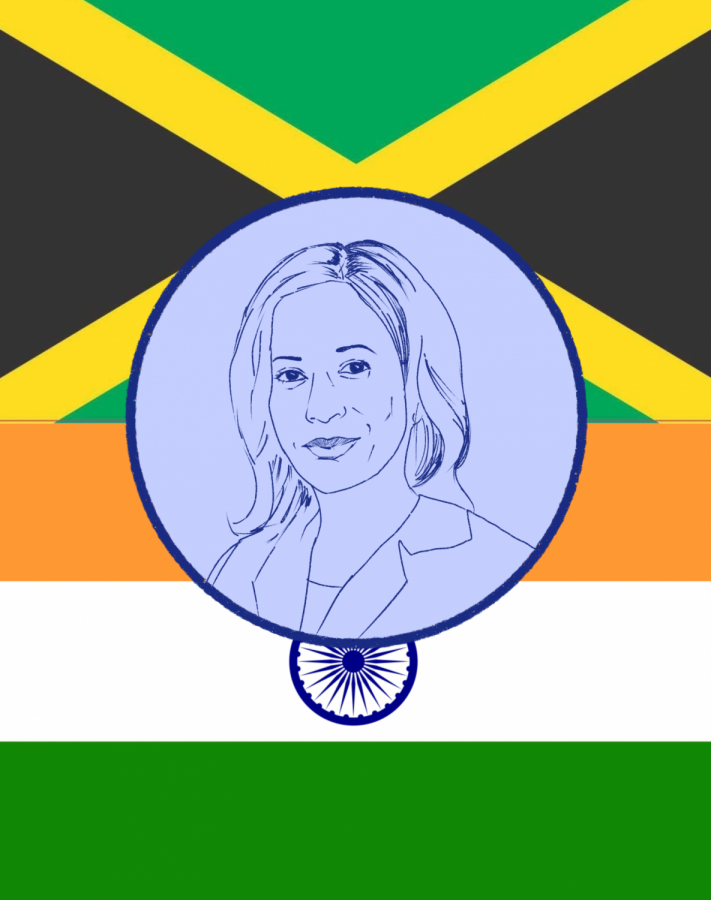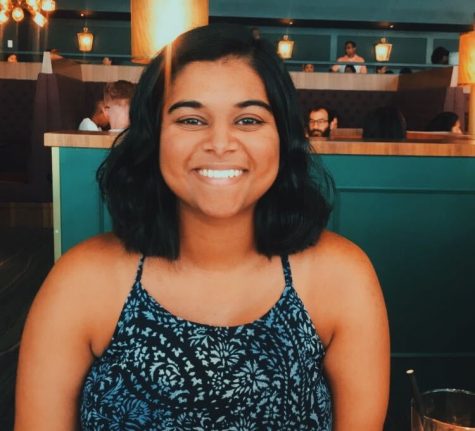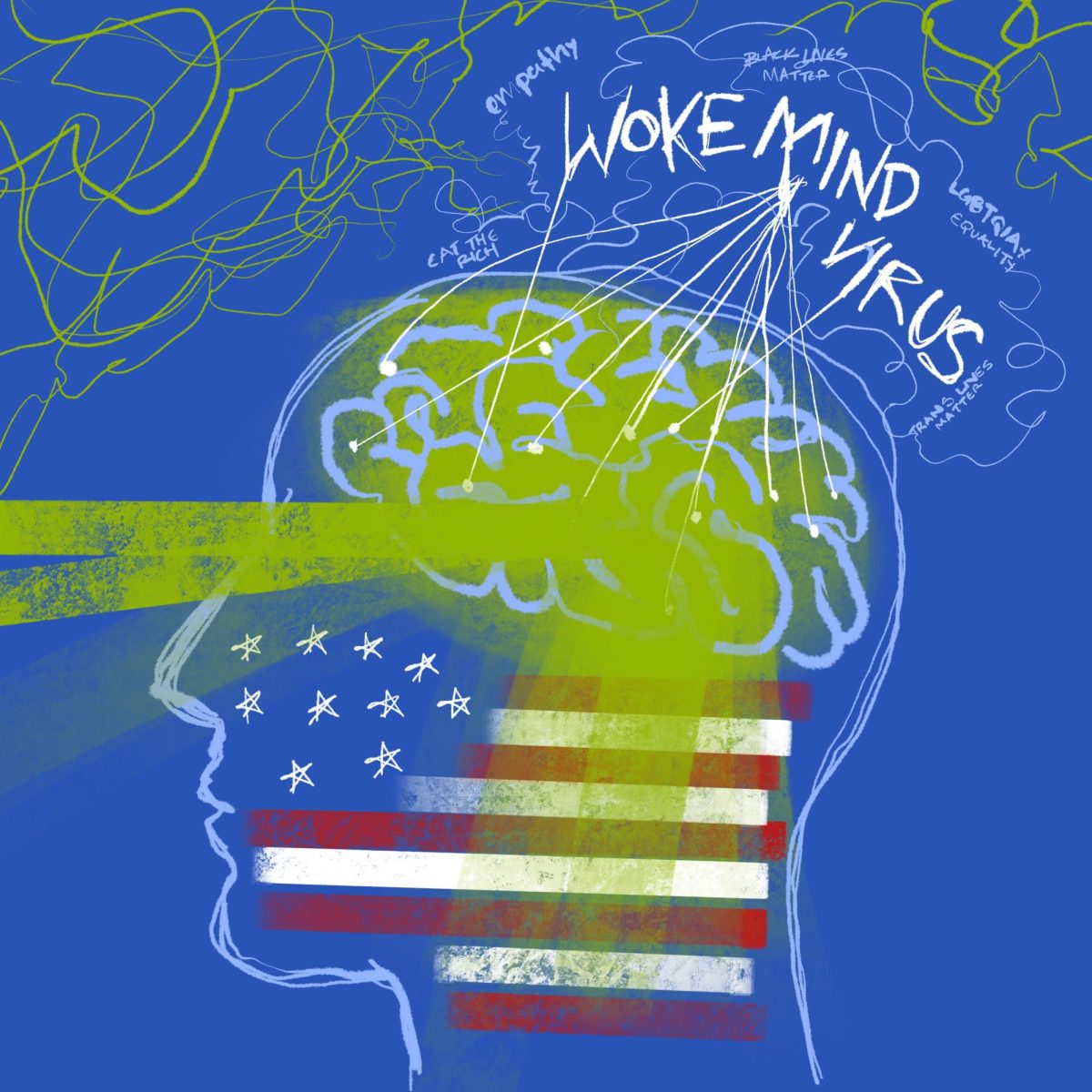Opinion | South Asians must acknowledge anti-Black attitudes before claiming Kamala Harris
August 23, 2020
Sen. Kamala Harris, D-Calif., accepted the Democratic nomination for vice president last week at the Democratic National Convention. Her nomination was historic, as she is the first Black and Indian-American woman to be nominated on a major party’s ticket.
While I personally favored other, more ideologically progressive candidates for the nomination, such as Stacey Abrams and Sen. Elizabeth Warren, D-Mass., I won’t pretend like the historic nature of Harris’ candidacy doesn’t move me. Black women have long been the backbone of the Democratic party, and it’s about time that Democrats nominated one to be veep. While I still believe that the policies of a candidate are more important than their racial or ethnic backgrounds, when the DNC played a video full of young Black and brown girls expressing their excitement at Harris’ nomination, I won’t lie, I was emotional.
It’s been inspiring to see what Harris’ candidacy means to people, especially Black and South Asian individuals. There have been many articles and Twitter moments as well as posts from my own family friends and relatives about Harris’s nomination that have highlighted her Indian roots and the excitement that the South Asian community feels about her being the VP nominee. But these things have prompted me to examine something not often spoken about in the South Asian community — its anti-Blackness.
I love that Indian-Americans will hopefully be able to claim Harris as the first Indian veep. I also love that Black Americans will hopefully be able to claim her as the first Black veep. But I don’t love the fact that some South Asians are laying claim to Harris’ Indian roots and completely disregarding her Black roots. Especially when, as Harris has said on numerous occasions, she is viewed by the world as a Black woman with all the difficulties that come with that.
As we all know, Black Americans face greater hardships than Indian-Americans when it comes to systemic inequality and racism in this country. Ignoring Harris’ Black roots in favor of her Indian ones disregards those struggles and further highlights the ever-present anti-Blackness in many Indian circles.
If you’re a member of the Desi community, you know about this problem, even if it’s something we rarely speak about. The pervasive colorism in our community and the skin whitening creams peddled by actors such as Priyanka Chopra show an incline toward “fair-complected” individuals, or really anyone closer to white, and a disregard for those with darker complexions that extends to a disregard for Black individuals. Indians even have their own slur for Black Americans that I’ve heard several “aunties and uncles” say over the years. But one of the biggest examples of the anti-Blackness in the South Asian community is the “no Blacks” marriage rule.
Most older Indian immigrants would prefer that their children or grandchildren marry other Indians, preferably of the same religion and even originally from the same area of India. There’s still a marriage “ranking” among older Indians, and no matter how that may differ, the “least-desirable matches” are usually anyone of the same gender and Black individuals. This “rule” is disgustingly racist, and oftentimes leads to further racism within the community against mixed-race children. South Asians shouldn’t be able to claim Harris, who is the product of a marriage between an Indian immigrant and a Black man, as our own until we confront this problem in our community.
While colorism and marriage rankings are much more prevalent with older South Asian immigrants than they are with my generation of first- and second-generation Indian-Americans, it doesn’t mean that we’re off the hook when it comes to anti-Blackness. Most Desis know a brown boy that co-opts Black culture, but will still take every chance to complain about affirmative action stealing their spots at Harvard. Many of them will inexplicably throw around the n-word every chance they get and imitate various Black celebrities, but God forbid they actually stand up when Black lives are on the line.
While all of the people who perpetuate anti-Blackness through these acts and others are incredibly wrong, we are also wrong when we don’t call them out for what they’re doing. Every time we ignore a relative’s racist marriage lecture and joke about it behind their back instead of trying to make them see that the race of a future partner doesn’t matter, or every time we let it slide when some brown kid whines about how they would have gotten into medical school if only they didn’t just let in every Black kid, we’re complicit in anti-Blackness.
It’s not right for anyone in the South Asian community who is complicit in or who perpetuates anti-Blackness to suddenly claim Harris. We should be able to celebrate her South Asian roots and her Black roots as she does. In order for South Asians to accurately do so, we must confront the anti-Blackness in our community.
I’m so glad that young Black and brown girls and boys will be able to see themselves represented in Harris and know that they can be anything that they want to be. But I don’t think that my fellow Indian-Americans can lay claim to Harris unless they also acknowledge her Black roots and the anti-Blackness in our community.
It’s time for all of us to have those tough conversations with our grandparents that constantly lecture us with their “no Blacks” marriage rule, that cousin who thinks he can say the n-word and the family friends that tell you to stay out of the sun before you “turn Black.” It’s time for all of us to take responsibility for the anti-Blackness in our community and work to educate others and ourselves to fix it. Then we can be excited about the inevitable, amazing Diwali celebration in the White House next year or the fact that we finally will have a veep who uses spices other than salt and pepper.
Devi primarily writes about politics for The Pitt News. Write to her at dvr7@pitt.edu and follow her on Twitter for more hot takes @DeviRuia.




